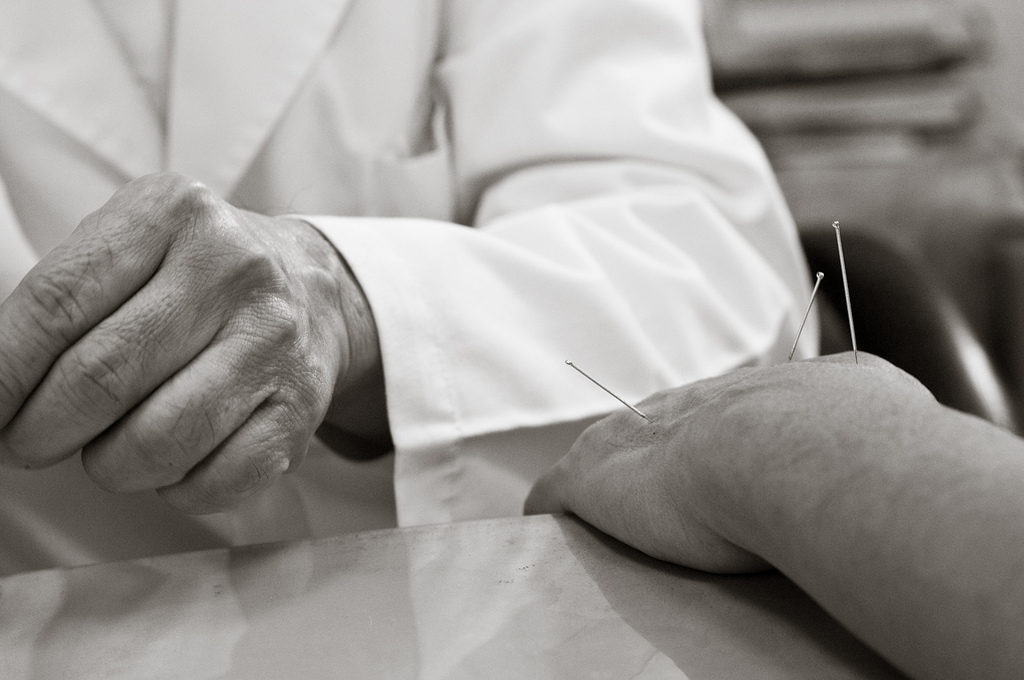An interesting article titled “Acupuncture for anxiety in dental patients: Systematic review and meta-analysis,” by Allan et al. appears in the European Journal of Integrative Medicine (vol. 20, pp. 22-35, 2018). The article sets to look at previous trials done to explore acupuncture and it’s potential effect on dental anxiety. Some dental patients experience anxiety which is estimated to be between 4% and 30% of the population in the world. Reasons for dental anxiety include fear of pain, fear of needles, fear of anesthesia, and the fear of losing control. In the past several articles on this site have explored dental anxiety including: 1.) How To Manage Dental Anxiety in Elderly Patients, 2.) Can Providing Audiovisual Information Help Relieve Anxiety in Patients Having Wisdom Teeth Removed?, 3.) Anxiety in Dental Patients Before and After Tooth Extraction, 4.) Dental Phobia – Therapy Treatments for Anxiety and Phobia, and 5.) Dental Anxiety Associates with Pain During Dental Procedures.
In the article by Allan et al., first some of the current approaches for dental anxiety is described. This includes giving a patient anesthesia or conscious sedation. Other techniques include relaxation techniques, guided imagery, biofeedback, hypnotherapy, acupuncture, cognitive behavioural therapy, behaviour management techniques, systematic desensitization or exposure therapy, distraction, enhancing control, positive reinforcement, and computer-assisted relaxation learning. The authors conducted what they consider to be the first systematic review of randomized controlled trials of acupuncture for anxiety in dental patients which addresses the question: What evidence is there for the effectiveness of acupuncture in reducing anxiety in dental patients?. The authors initially identified 59 English language studies and 68 Chinese language studies for consideration. This reduced to just six studies with a total of 800 participants after agreement by two reviewers, removal of duplicates, and meeting the authors inclusion criteria. Of the six studies only two studies had data for meta-analysis with continuous measures of anxiety after using acupuncture the authors could synthesize.

In these two studies a 80-point scale from the State-Trait Anxiety Inventory was used which allowed the authors to calculate the mean difference between point scores after dental treatment for those who received acupuncture and control groups (not given acupuncture). Based on a fixed effects model anxiety scores were reduced by 8.43 points and based on a random effects model anxiety scores were reduced by 9.22 points, both being statistically significant. Further, a decrease of over 8 points on this scale was considered to be a clinically meaningful reduction in anxiety. This translates to mean that from these two studies it was found that acupuncture could help reduce dental anxiety. The researchers also calculated a pooled effect for comparing acupuncture with sham treatment groups (fake acupuncture) based on the fixed effects and random effects models. Based on this anxiety scores were reduced by 1.54 points but this was considered to be not statistically significant and not clinically meaningful. However the authors do point out that the selection of sham points in fake acupuncture is considered controversial. It is also important to note that these two studies used the auricular style of acupuncture and so extending their results to other types of acupuncture may not be warranted.
In their discussion the authors point out that their results regarding a percentage decrease in dental anxiety are similar to what was found in a 2013 systematic review by Boman et al. in an article titled “Psychological treatment of dental anxiety among adults: a systematic review,” European Journal of Oral Sciences (vol. 121, pp. 225–234, 2013). The study by Boman et al. found around a 10% reduction in dental anxiety for patients treated with cognitive behavioural therapy. The authors in the study by Allan et al. feel that larger randomized controlled trials with adequate statistical power are needed. They feel further studies should consider measuring anxiety scores at three distinct times: 1.) prior to receiving acupuncture, 2.) after receiving acupuncture but before dental treatment, and 3.) after receiving dental treatment. The authors also encourage work on cost effective analysis of acupuncture and exploring the quality of life improvements that can result from treating dental anxiety with acupuncture.
